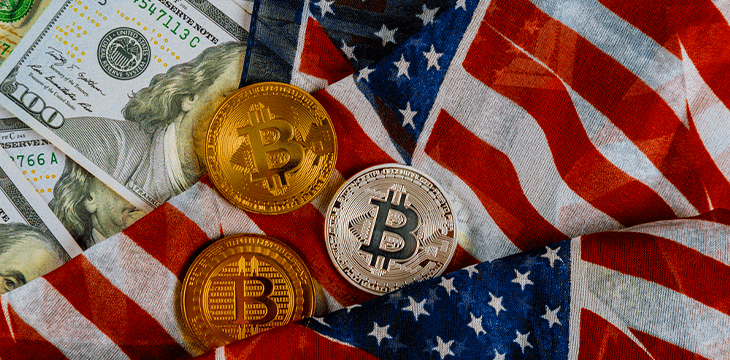
|
Getting your Trinity Audio player ready... |
Over the past couple of years, government after government has clamped down on anonymous digital currency transactions. China dealt with the problem by outright banning them, the European Union brought in new rules to ban anonymous transactions, and the USA is now firmly on the same track.
In Treasury’s recently published a semiannual agenda of regulations, the agencies involved said that:
“FinCEN is proposing to amend the regulations implementing the Bank Secrecy Act (BSA) to require banks and money service businesses (MSBs) to submit reports, keep records, and verify the identity of customers in relation to transactions involving convertible virtual currency (CVC) or digital assets with legal tender status (‘legal tender digital assets’ or ‘LTDA’) held in unhosted wallets, or held in wallets hosted in a jurisdiction identified by FinCEN.”
What exactly does the agenda and regulatory agenda say?
The agenda was published on January 31, and outlined the priorities for the Treasury to work on in the following six months.
It specifically says that “The purpose of the agenda is to provide advance information about pending regulatory activities and encourage public participation in the regulatory process.”
While there are many different regulations both proposed and up for review, covering everything from sections of the Bank Secrecy Act to corporate transparency and others, what we’re interested in is regulations 1506-AB41 and 1506-AB47.
They are as follows:
- 1506-AB41 – Clarification of the Requirement to Collect, Retain, and Transmit Information on Transactions Involving Convertible Virtual Currencies and Digital Assets With Legal Tender Status.
- 1506-AB47 – Requirements for Certain Transactions Involving Convertible Virtual Currency or Digital Assets.
The proposed rule 1506-AB41, which involves both FinCEN and the Board of Governors of the Federal Reserve System, will seek to clarify the meaning of ‘money‘ as used in the rules implementing the Bank Secrecy Act.
These rules currently require financial institutions to collect, retain, and transmit information about certain funds transfers. The Agencies seek to ensure these rules apply to domestic and cross-border transactions of convertible virtual currency (such as digital currencies) that either have an equivalent value as currency or act as a substitute for currency but lack legal tender status.
The Agencies will also seek to make sure these rules apply to both domestic and cross-border transactions involving digital assets with legal tender status.
As for rule 1506-AB47, the ‘unhosted wallet’ rule, it proposes to amend the Bank Secrecy Act to require banks and Money Service Businesses (MSBs) to submit reports, keep records, and verify the identity of customers in relation to transactions involving convertible virtual currency (CVC) or digital assets with legal tender status held in unhosted wallets, or held in wallets hosted in a jurisdiction identified by FinCEN.
Effectively, this will mean the end of anonymous digital currency transactions in the United States. It will also mean that Money Service Businesses, which encompass anyone involved in the transfer of digital assets, will have to collect much more information on users.
What’s the intention here? What do these rules mean?
A few things jump out right away from the wording in the agenda.
- First, the involved Agencies don’t plan to tolerate transfers of digital currencies or assets either domestically or internationally without knowing who’s sending what and to whom. That much is obvious and has been a long time coming.
- Second, there’s a hint that some digital currencies may gain legal tender status in the future. Why else would they seek to ensure the rule applies to digital assets that do have legal tender status? It’s likely that in the shorter term, this is intended to make sure the rules cover a central bank digital currency (CBDC) issued by the Federal Reserve or CBDCs issued by other central banks.
- Lastly, we can surmise that AML/KYC procedures are about to be ramped up majorly by exchanges, wallet providers, and others who may fall under the purview of the regulations. This will radically change the way the industry currently operates. It’s also arguable that Lightning hubs are Money Service Businesses, so we’ll see how they cope with the new rules.
The game is about to change
Overall, the picture is clear: the walls are closing in on the Wild West era of digital currencies, just as SEC Chairman Gary Gensler promised in 2021. The European Union, China, India, and others have already taken action to tame the industry. When the U.S. government does the same, you can be certain that most other countries will follow. After all, being the biggest buyer, Uncle Sam calls the shots in the world financial system.
It’s clear that whatever form the final wording of these proposed rules takes, the end is near to the era of so-called anonymous digital currency transactions. If only most had listened to Satoshi Nakamoto and what he’s been saying all along and prepared accordingly!
Watch: U.S. Congressman Bill Foster on Bitcoin Association’s Blockchain Policy Matters
Recommended for you
Lorem ipsum odor amet, consectetuer adipiscing elit. Elit torquent maximus natoque viverra cursus maximus felis. Auctor commodo aliquet himenaeos fermentum
Lorem ipsum odor amet, consectetuer adipiscing elit. Accumsan mi at at semper libero pretium justo. Dictum parturient conubia turpis interdum

 11-22-2024
11-22-2024


